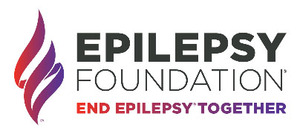Two Fathers Share Personal Stories And Vision As They Join Forces To Lead The Nation's Largest Epilepsy Organization
Commentary Published in Epilepsy & Behavior by Epilepsy Foundation CEO and Epilepsy Therapy Project Chairman Delivers Powerful Commitment to Improving Lives and Medical Options for Those Living with Epilepsy
SAN DIEGO, Dec. 3, 2012 /PRNewswire/ -- In an editorial published in the current issue of the journal Epilepsy & Behavior, Epilepsy Foundation (EF) President and CEO Phil Gattone and Epilepsy Therapy Project (ETP) Chairman and Co-founder Warren Lammert discuss their personal journeys and rationale for the upcoming merger between two leading organizations in the epilepsy community. In the editorial, "Stronger together – the Epilepsy Therapy Project and Epilepsy Foundation decide to merge. Our personal stories and reflections" (http://my.epilepsy.com/etp/stronger_together_epilepsy_and_behavior), Gattone and Lammert outline how they will continue with a single mission and voice to build a strong and more unified community to support and advance the lives of people living with epilepsy. The Epilepsy & Behavior editorial was previewed at the American Epilepsy Society (AES) 66th Annual Meeting in San Diego, CA.
The Epilepsy Therapy Project and Epilepsy Foundation announced their intent to merge in October 2012, which is expected to complete in January 2013. The idea of a merger was spurred on by The Institute of Medicine (IOM) Report, "Epilepsy Across the Spectrum: Promoting Health and Understanding" (http://www.iom.edu/Reports/2012/Epilepsy-Across-the-Spectrum.aspx), a comprehensive study that suggested the Epilepsy Foundation, with its active affiliate base, advocacy network and supportive care programs, and the Epilepsy Therapy Project, with its website, www.epilepsy.com and acknowledged strength in supporting translational research and new product development, could gain strength and momentum by joining together. Leaders in the field also voiced their enthusiasm for an integrated organization to lead the charge in expanding and improving public awareness and addressing the public health dimensions associated with seizure disorders, including challenges in school, uncertainties about social situations and employment, limitations on driving and questions about independent living.
"I applaud the Epilepsy Foundation and Epilepsy Therapy Project for proactively joining forces to improve educational opportunities for people with epilepsy and their families, as well as accelerating crucial research and new therapies," said Steven Schachter, MD, Editor-in-Chief of Epilepsy & Behavior and Professor of Neurology at Harvard Medical School; Chief Academic Officer and Director of NeuroTechnology for the Center for Integration of Medicine and Innovative Technology, Boston; and Senior Neurologist, Beth Israel Deaconess Medical Center, Boston. "Together this new organization will elevate our efforts to address these critical issues and more effectively serve the epilepsy community. I believe the determination and capability of this organization will become a model for patient advocacy and advancing critical research and development."
The two organizations have a decade-long history of successful partnership in funding new therapies and devices for epilepsy. The New Therapy Grants program, sponsored by the EF and ETP, has provided funding for approximately 50 percent of the 80+ epilepsy therapies and projects in active development including three new products that have become available to patients this year.
Recognizing each organization's distinct role and mission in pipeline advancement and other accomplishments, EF and ETP leadership envisioned a strategic opportunity and rationale for a single powerful entity focused on epilepsy and its consequences. In the December issue of Epilepsy & Behavior, Phil Gattone and Warren Lammert share the stories of their families and their personal passion to improve resources – including information and therapeutics – for all members of the epilepsy community.
Phil Gattone's Story
Phil and Jill Gattone's son Philip was four years old when they found him one morning fully immersed in a generalized tonic-clonic seizure. Within a few weeks multiple seizures were occurring daily and increasing in frequency and severity. The family's search for answers led them to an epilepsy support group run by the Epilepsy Foundation of Greater Chicago.
Gattone recalls, "We found more than a resource that night – we found hope in a group of parents who, like us, were not victims, but people determined to find answers, including a nurse clinician who cared enough to volunteer to teach."
Gattone describes a pervasive lack of understanding and stigma associated with epilepsy, which led to difficult times for Philip during his elementary and middle school years. People were not prepared to accept his son and it was clear that more education and public awareness were profoundly needed. Gattone became involved with the Epilepsy Foundation and was privileged to lead the Epilepsy Foundation of Greater Chicago. He witnessed how EF affiliates across the country helped thousands of people every day to overcome the challenges created by seizure disorders.
Warren Lammert's Story
Warren Lammert's commitment to finding new therapies for seizure disorders stems from his personal struggle to find an answer for his daughter Sylvie, who experienced her first seizure at nine months and whose seizures continued to multiply in size and frequency. Through the years, her family tried various drugs and combinations, the ketogenic diet, and a surgically implanted medical device; yet Sylvie's seizures continued. Lammert found little information available for a family facing the complexity and challenges of Sylvie's epilepsy. With the help of Sylvie's physician, Orrin Devinsky, MD, Professor of Neurology, Neurosurgery and Psychiatry and Director, NYU Comprehensive Epilepsy Center, and other colleagues, www.epilepsy.com was launched as a comprehensive resource for the patient and professional communities.
Lammert was further shocked to learn that medical treatments against uncontrolled seizures were severely limited just as the field overall suffers from being vastly underfunded. In what he calls, "a profound failure," Lammert notes that seizures in approximately one-third of patients continue to be uncontrolled today – with no significant difference in patient outcomes in over 50 years. Together with Devinsky, parents, friends and broad support from medical professionals, the Epilepsy Therapy Project was launched with a focus on funding new research programs and "accelerating ideas into therapies for people living with epilepsy."
In coming together to merge the resources, missions, programs and infrastructures of the Epilepsy Foundation and the Epilepsy Therapy Project, the authors acknowledge that they are being "called upon now in this challenging time – summoned for a common and noble purpose. That purpose is to serve together whenever we are able, knowing we can do better in our effort to support people with epilepsy."
About Epilepsy
When a person has two or more unprovoked seizures, they have epilepsy, which affects nearly three million people in the United States and 50 million people worldwide. This year, another 200,000 people in our country will be diagnosed with epilepsy. Despite all available treatments, 30 to 40 percent of people with epilepsy continue to experience seizures.
About the Epilepsy Foundation and Epilepsy Therapy Project
In October 2012, the Epilepsy Therapy Project and Epilepsy Foundation announced an intention to merge (http://my.epilepsy.com/newsfeeds/press_release/999447). The new organization will have unparalleled reach and leadership through a nationwide supportive care network, broad-based public awareness, education and focus on accelerating the clinical development of innovative therapies for people with epilepsy.
The Epilepsy Foundation, a national nonprofit with affiliated organizations throughout the United States, has led the fight against epilepsy since 1968. The Foundation's mission is to stop seizures, find cures and overcome the challenges created by epilepsy. For additional information, please visit www.epilepsyfoundation.org.
The Epilepsy Therapy Project is a national non-profit organization whose mission is to accelerate ideas into therapies for people living with epilepsy and seizures. Founded in 2002 by a group of parents, distinguished physicians, and researchers, the Epilepsy Therapy Project supports the commercialization of new therapies through direct grants and investments in promising academic and commercial projects. For more information about epilepsy, epilepsy treatment and the epilepsy pipeline, or to donate, please visit our website, www.epilepsy.com.
SOURCE Epilepsy Foundation
WANT YOUR COMPANY'S NEWS FEATURED ON PRNEWSWIRE.COM?
Newsrooms &
Influencers
Digital Media
Outlets
Journalists
Opted In





Share this article